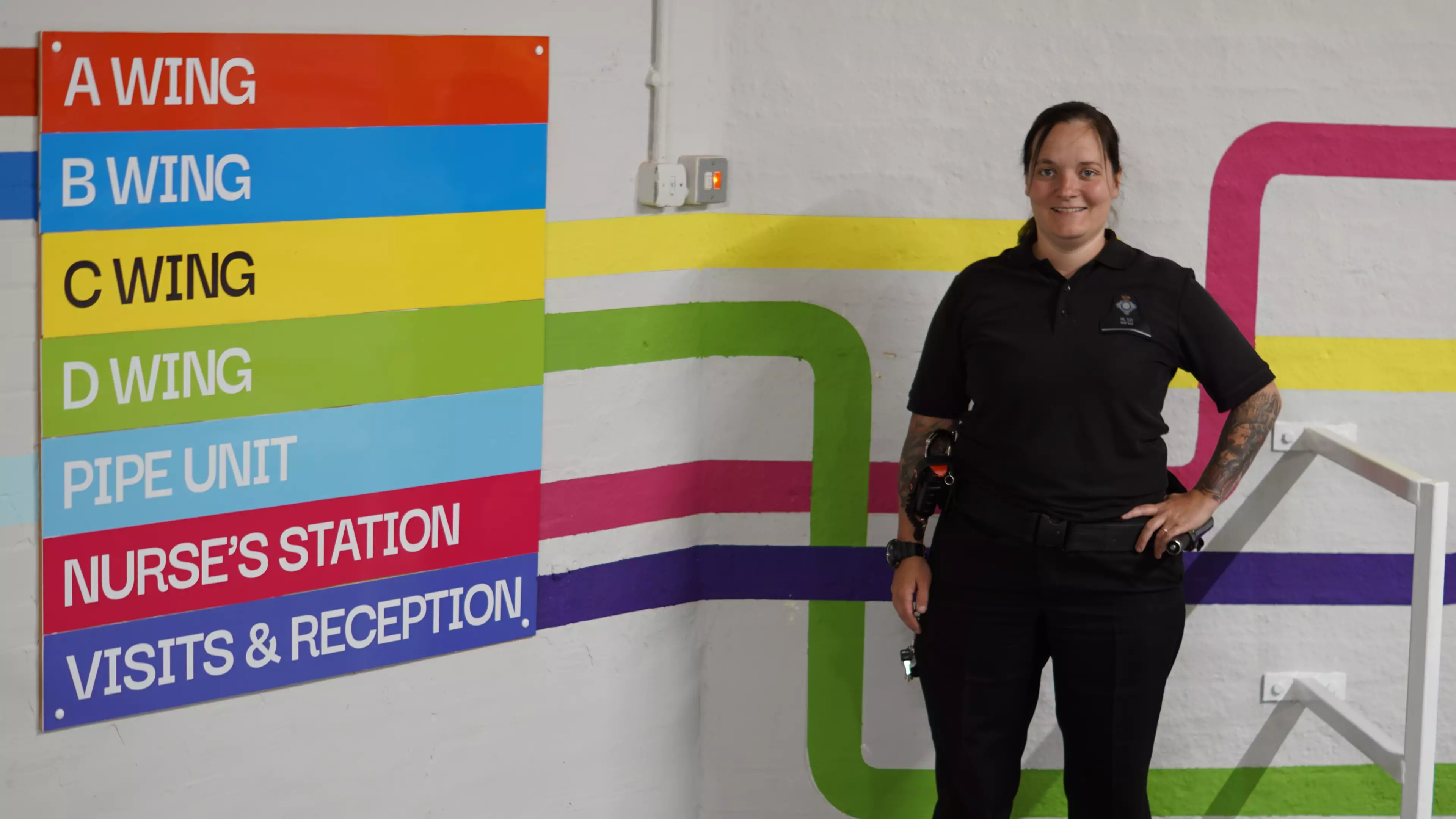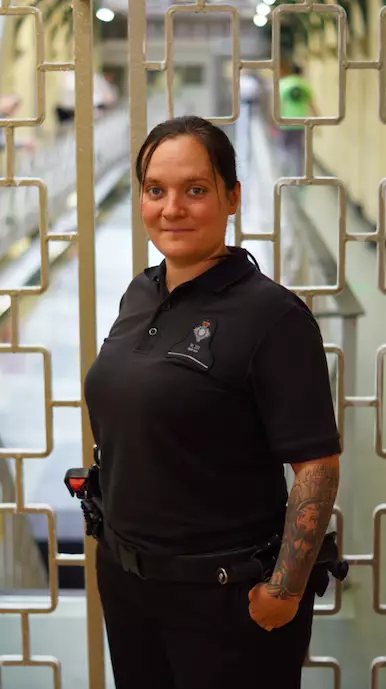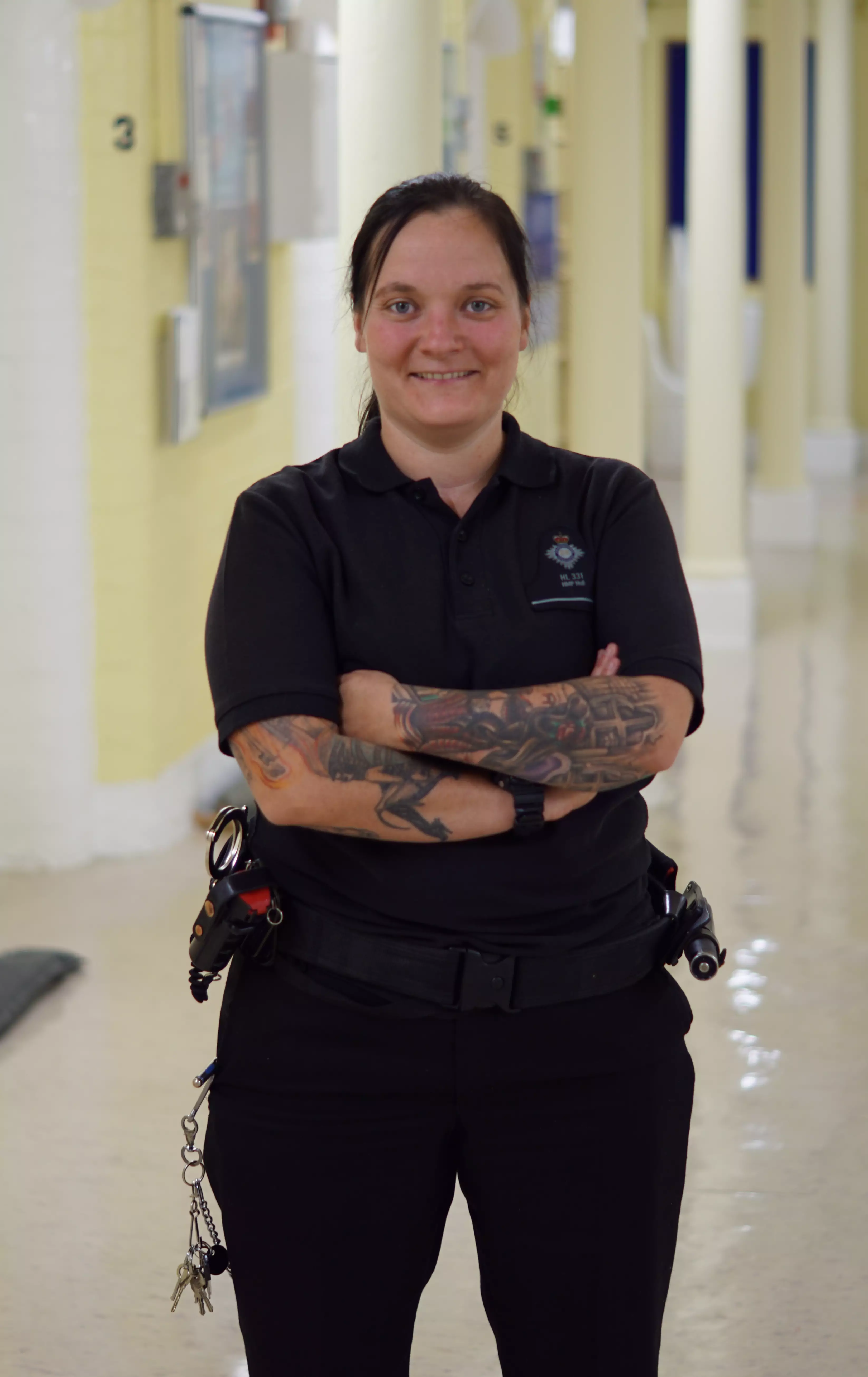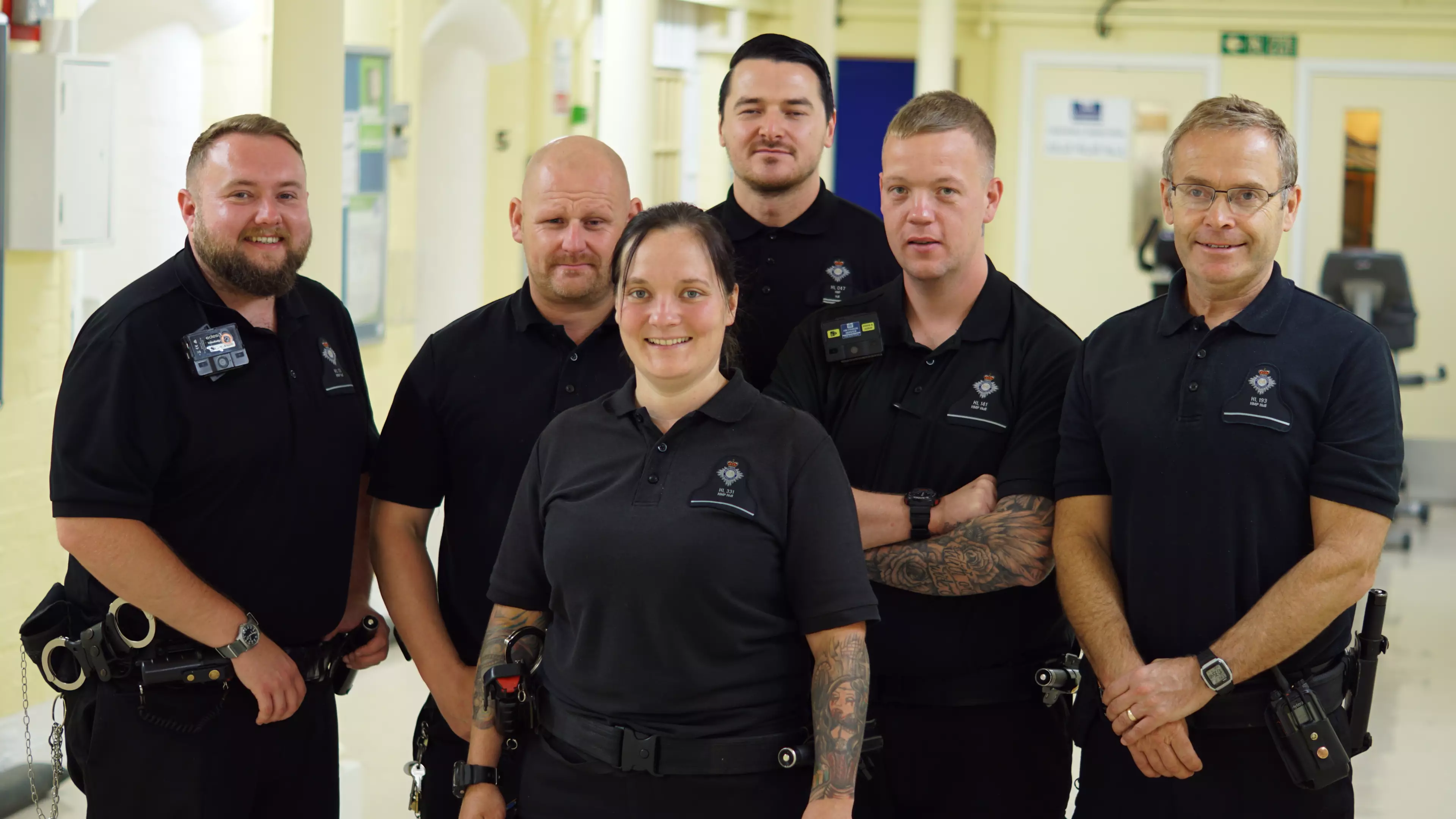
Nearly five months in, the beginning of lockdown is beginning to feel like a distant memory. For many of us, isolating in our homes was inconvenient and frustrating; for others, it was devastating.
Brits rallied around to support the vulnerable, the NHS heroes, the school teachers, the retail workers and delivery drivers - and rightly so. But did you ever stop to wonder what it was like to be a prison officer during the coronavirus outbreak?
The prison population in England and Wales stands at 79,600 and, out of 540 inmates who tested positive for coronavirus, there have been a relatively low 23 deaths since the start of the pandemic. So how do you contain a virus in such close quarters?
Advert
Tyla spoke to 37-year-old Becky Lambert from one of England's toughest jails, HMP Hull, about working in prison during a global pandemic, the challenges of caring for homesick men desperate to see their loved ones, and why prison staff are so often hailed as "hidden heroes".

It was a Thursday in late March when, four days into the coronavirus lockdown, I looked at my colleague and said, "Oh my god, what are we going to do if they stop visitors?"
There had been whisperings of visits being stopped for days. But as it's the most important thing for the prisoners - they get to see their family, their children - I knew it was going to be incredibly difficult for them when the time did come.
Advert
It was made even more challenging by the fact [the prisoners] didn't understand it was exactly the same for staff, too. We couldn't see our families, or our friends. We had to isolate in our homes. The problem was that, at first, the prisoners saw it as a punishment.
The beginning was the most difficult part. The prisoners were anxious and scared, it's been hard for them and for their families. Their day-to-day routines at the moment are very mundane and monotonous, which doesn't make it any easier. There are a lot of prisoners who are homesick and that is really sad to see.
Although we stopped the visits, we had a phone installed into every cell so that prisoners could maintain contact by telephone. We also realised that not everyone has the privilege of being sent money, so we've been giving them money every week for calls.
Some were really cool about the lack of visits; they'd rather their families weren't travelling or making unnecessary journeys. Then there are the prisoners whose family members are poorly and that's been really tough - but it's nothing compared to those who are homesick.
Advert
They behave so well in custody to get extra visits and privileges, and then all of a sudden it's all taken away. Because it's adult men, too, it's especially tough to watch. I have a lad on my wing who is really homesick, he's desperate to see his mum.
Throughout, we've been constantly adapting and things have been working very differently.
Now, when a new prisoner will come through custody they are checked over by healthcare first and asked if they have any symptoms.
Advert
They are then asked to-self isolate and to let us know if they begin to feel poorly. In a way it's just like it is on the outside - we found it difficult isolating in our homes, but can you imagine what it's like to self-isolate in a cell?

There are some areas of the jail where it's been physically impossible to distance - like in the kitchens - but now, prisoners don't mix with other areas of the jail and we limit the number of people out of their cells at one time.
If anything, it's brought the inmates closer together because they have to talk to people they wouldn't usually socialise with.
Advert
For a lot of prisoners, it's put things into perspective. There's one gentleman who's been coming in and out of custody for over 20 years - I've always known him. He hadn't had any family contact for two decades. But he recently reached out to his dad and has completely turned things around. He's now out and employed for the first time in 12 years - and with his dad, no less.

There have currently been no cases of coronavirus at HMP Hull - we've been extra careful from day dot.
On a personal level, one of the most difficult parts has been not just the consistent working and not being able to switch off when you get home. You're dealing with one thing at work and then you get home and it's the same - it's relentless.
As prison officers, we always consider ourselves hidden heroes, just because we are this little community that's tucked away. People drive past our big walls, they don't know what happens inside.
If you want to know more about what it's like to be a prison officer - or how to apply for a role yourself - you can find more information on the HM Prison & Probation Service website.
Topics: Life News, Coronavirus